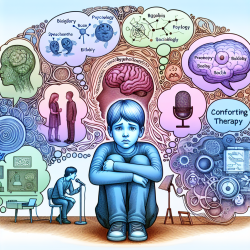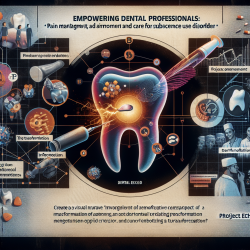As a practitioner dedicated to enhancing children's outcomes, it is essential to stay informed about the latest research in digital mental health solutions. A recent study titled Intention to use digital mental health solutions: A cross-sectional survey of university students' attitudes and perceptions toward online therapy, mental health apps, and chatbots offers valuable insights that can be leveraged to improve your practice.
The study surveyed 17,838 university students across four South African universities to assess their experiences with, attitudes toward, and intentions to use digital mental health solutions. The findings reveal that a significant proportion of students are already engaging with these technologies and express a high intention to use them in the future.
Key Findings
- Intention to use digital mental health solutions is high, with many students willing to engage with online therapy, mental health apps, and chatbots.
- Attitudes towards the utility, effectiveness, and safety of digital mental health solutions significantly influence students' willingness to use them.
- 12.6% of students were willing to use digital mental health solutions but were unwilling to utilize traditional face-to-face therapies.
Practical Implications
Based on these findings, here are some practical steps you can take to enhance your practice:
1. Emphasize the Benefits of Digital Solutions
Students are more likely to engage with digital mental health solutions if they perceive them as accessible, effective, and safe. Educate students and parents about the benefits of these technologies, such as convenience, privacy, and reduced stigma.
2. Address Concerns About Effectiveness
Some students may be skeptical about the effectiveness of digital solutions compared to traditional face-to-face therapy. Provide evidence-based information and success stories to alleviate these concerns.
3. Ensure Data Security and Privacy
Data security and privacy are significant concerns for students. Ensure that the digital solutions you recommend comply with stringent data protection regulations and clearly communicate these measures to students and parents.
4. Foster Trust in AI and Chatbots
While chatbots are less commonly used, they hold significant potential. Build trust in AI by highlighting their capabilities and the research supporting their use in mental health interventions.
5. Encourage Further Research
Encourage students and parents to stay informed about ongoing research in digital mental health. This will help them make informed decisions and stay updated on the latest advancements.
By implementing these strategies, you can enhance the mental health support you provide to students, ensuring they have access to the most effective and convenient solutions available.
To read the original research paper, please follow this link: Intention to use digital mental health solutions: A cross-sectional survey of university students' attitudes and perceptions toward online therapy, mental health apps, and chatbots.










